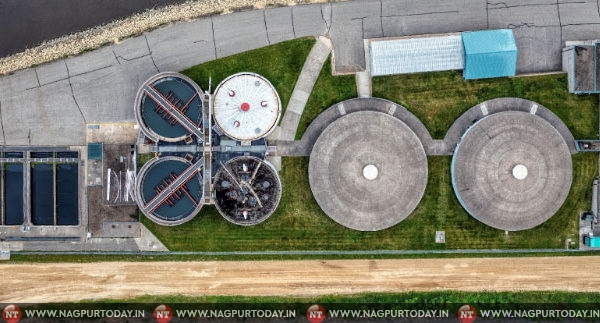Industrial wastewater is a pressing environmental issue in India, posing significant risks to ecosystems and human health. With industries ranging from textiles to pharmaceuticals generating vast quantities of wastewater, the need for effective treatment solutions has never been more critical. Untreated industrial effluents can lead to severe ecological damage, contaminating water bodies and depleting natural resources.
Ion Exchange, a pioneer in industrial wastewater treatment, offers advanced and sustainable solutions tailored to diverse industrial needs. Their expertise in designing and implementing cutting-edge treatment systems makes them a trusted partner for industries striving for compliance and sustainability.
The Environmental Consequences of Untreated Wastewater
Industrial wastewater, if left untreated, can have devastating impacts on the environment and public health. Toxic pollutants in wastewater contaminate rivers, lakes, and groundwater, endangering aquatic life and reducing the availability of clean water.
The presence of heavy metals, organic compounds, and emerging contaminants in untreated effluents can also harm agriculture, as irrigation with polluted water leads to soil degradation and crop toxicity. Additionally, exposure to industrial pollutants is linked to respiratory and skin diseases, emphasizing the urgency of adopting effective treatment solutions.
Key Contaminants in Industrial Wastewater
Industrial wastewater contains a wide range of pollutants, each posing unique challenges to treatment and disposal.
-
Toxic Effects of Heavy Metals
Heavy metals like lead, mercury, cadmium, and chromium are common in industrial effluents. These metals are highly toxic and persist in the environment, bioaccumulating in food chains and causing long-term ecological damage. Their removal is crucial to protecting both human health and the environment.
-
Challenges in Degrading Organic Pollutants
Organic pollutants, such as dyes, phenols, and pesticides, are often resistant to conventional treatment methods. These substances not only degrade water quality but also pose a significant threat to aquatic ecosystems. Addressing these pollutants requires innovative technologies capable of breaking down complex organic molecules.
-
Emerging Contaminants of Concern
Recent studies have identified emerging pollutants, such as pharmaceuticals, personal care products, and microplastics, in industrial wastewater. These contaminants are challenging to detect and remove, yet their impact on the environment and public health is increasingly evident.
Innovative Technologies for Wastewater Treatment
Advancements in industrial wastewater treatment have led to the development of innovative solutions that enhance efficiency and effectiveness.
-
Membrane Bioreactor (MBR) Technology
MBR technology combines biological treatment with membrane filtration, offering a compact and efficient solution for wastewater treatment. By integrating these processes, MBR systems can effectively remove organic pollutants, pathogens, and suspended solids, making them ideal for industries with stringent discharge requirements.
-
Advanced Oxidation Processes (AOPs)
AOPs use powerful oxidizing agents to degrade complex and non-biodegradable pollutants. These processes are highly effective in breaking down contaminants like pesticides, dyes, and pharmaceutical residues, making them indispensable for industries dealing with hazardous effluents.
-
Electrocoagulation: A Revolutionary Solution
Electrocoagulation is an emerging technology that uses electrical currents to remove contaminants. It is particularly effective for treating heavy metals, oils, and emulsified pollutants. This cost-effective and environmentally friendly method is gaining traction across various industrial sectors.
-
Nanotechnology: The Future of Wastewater Treatment
Nanotechnology holds immense potential for improving wastewater treatment processes. Nanomaterials, such as carbon nanotubes and nanoparticles, offer exceptional adsorption and catalytic properties, enabling the removal of even trace-level contaminants. As research in this field progresses, nanotechnology is expected to revolutionize the treatment of industrial wastewater.
Ion Exchange incorporates cutting-edge technologies into its industrial wastewater treatment solutions, guaranteeing superior performance and adherence to regulatory requirements. Their product offerings include Wastewater Systems, Water Recycling, and Zero Liquid Discharge (ZLD) systems.
Challenges and Opportunities in Wastewater Treatment
Despite the availability of innovative solutions, industrial wastewater treatment faces several challenges, as well as opportunities for growth and development.
-
Technological Barriers and Breakthroughs
The complexity of industrial effluents often makes it challenging to design effective treatment systems. However, recent advancements, such as real-time monitoring and automation, are helping overcome these barriers. Innovations like smart sensors and AI-driven analytics enhance the efficiency and precision of treatment processes.
-
Economic Considerations and Investment Potential
Cost remains a significant factor in adopting advanced wastewater treatment technologies. However, increasing government incentives and growing awareness of the long-term benefits of sustainable practices are encouraging industries to invest in modern treatment systems. The market for industrial wastewater treatment is poised for substantial growth, creating opportunities for businesses and solution providers alike.
-
Future Directions for Industrial Wastewater Management
The future of industrial wastewater treatment in India lies in adopting decentralized systems, energy-efficient technologies, and circular economy principles. Practices such as resource recovery and wastewater reuse are gaining momentum, reducing environmental impact and operational costs.
Ion Exchange is at the forefront of addressing these challenges, offering comprehensive solutions that combine innovation, efficiency, and sustainability. Their commitment to driving progress in industrial wastewater management ensures that industries can meet current and future challenges effectively.
Conclusion
Industrial wastewater treatment is no longer just an environmental obligation; it is a strategic necessity for industries aiming to thrive in a competitive and sustainability-conscious market. The adoption of advanced treatment solutions is essential to mitigate environmental risks, protect public health, and comply with regulatory requirements.
As a leader in industrial wastewater treatment plant solutions, Ion Exchange continues to play a pivotal role in driving innovation and excellence in the field. By leveraging state-of-the-art technologies and a customer-centric approach, Ion Exchange empowers industries to achieve sustainable wastewater management and contribute to a cleaner and healthier future.
FAQs
- What are the most effective methods for treating industrial wastewater?
Membrane bioreactors, advanced oxidation processes, and electrocoagulation are highly effective for treating industrial wastewater. - How can industries in India comply with wastewater treatment regulations?
Industries can comply by installing advanced treatment systems and regularly monitoring discharge quality to meet regulatory standards. - What is the role of nanotechnology in wastewater treatment?
Nanotechnology enhances treatment efficiency by using nanomaterials to remove trace contaminants and improve water quality. - Can treated industrial wastewater be reused? If yes, how?
Yes, treated wastewater can be reused for irrigation, cooling systems, and industrial processes through proper recycling methods.
















